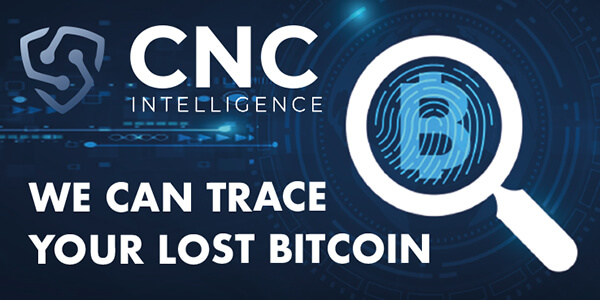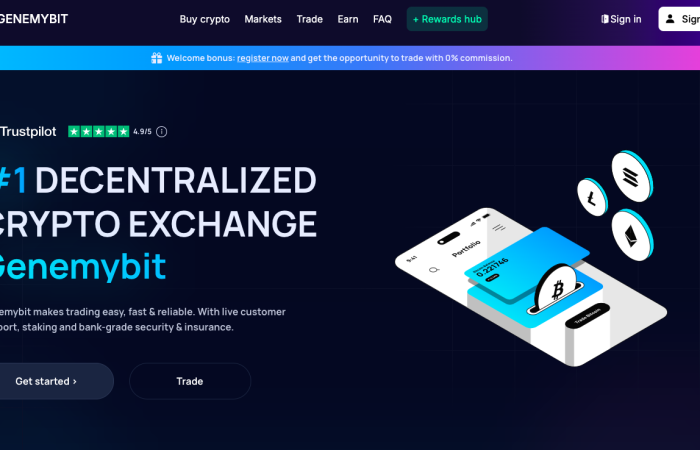DHHS grant scams have become increasingly common in recent years, with scammers impersonating representatives of the U.S. Department of Health and Human Services (DHHS) and offering grants to individuals in exchange for an upfront payment.
On April 12, 2023, we came across the following complaint by a Louisiana, USA person who claims they were scammed for $10,000:
They kept telling me that the more money I sent, the larger the DHHS grant would be. I have names and addresses of where the money orders and cash were sent.
It is possible that this is a DHHS grant scam.
Many people are unaware of the tactics used by these scammers and may fall for their tricks, resulting in significant financial losses. The scammers use various tactics such as promising larger grants in exchange for more money, requesting payments to be made through money orders or cash, and creating fake websites or documents to make their offers seem legitimate.
DHHS grants are offered by the U.S. Department of Health and Human Services for various programs such as healthcare, education, and social services. However, scammers have been taking advantage of these grants by posing as representatives of DHHS and offering grants to individuals in exchange for upfront payment.
Scammers use various tactics such as promising larger grants in exchange for more money and requesting payments to be made through money orders or cash.
Victims of these scams are often vulnerable individuals who are in need of financial assistance.
It is important to be cautious and thoroughly research the organization before sending any money.
Discussing DHHS grant scams is crucial in protecting the public from financial fraud and exploitation.
In this article, we will discuss DHHS grant scams, how they work, and how to avoid falling victim to them.
What is a DHHS grant scam?
DHHS grant scams involve scammers posing as representatives of the U.S. Department of Health and Human Services and offering grants to individuals in exchange for an upfront payment. These scammers use various tactics, such as promising larger grants in exchange for more money, requesting payments through money orders or cash, and creating fake websites or documents to appear legitimate. These scams have become more common and result in significant financial losses for victims.
Here are some common tactics used by scammers in DHHS grant scams:
Promising larger grants in exchange for more money
Scammers may tell individuals that the more money they pay upfront, the larger the DHHS grant they will receive.
They use this tactic to convince people to send more money in the hope of receiving a larger grant, when in reality, the grant offer is fake.
Requesting payments through money orders or cash
Scammers often ask individuals to make payments through money orders or cash, which are difficult to trace and provide no protection to the victim.
They may also tell the victim to send the money to an individual or address that has no connection to the DHHS.
Creating fake websites or documents
Scammers may create fake websites or documents that appear to be from the DHHS to make their offer seem legitimate.
They may use logos or information from the DHHS website to make their fake materials look more convincing.
Using high-pressure tactics
Scammers may use high-pressure tactics to try and get the victim to send money quickly.
They may create a sense of urgency by telling the victim that the offer is only available for a limited time, or that they risk losing the grant if they don’t act immediately.
Impersonating DHHS representatives
Scammers may impersonate DHHS representatives to make their offer seem more legitimate.
They may use fake names or phone numbers to create the illusion of a legitimate organization.
Here are some recent examples of DHHS grant scams:
In 2019, scammers sent letters to individuals claiming to be from the DHHS and offering them a grant in exchange for an upfront payment. The letters were designed to look like official DHHS correspondence and included fake signatures from DHHS officials. The scammers requested payment through money orders or cash and provided a fake address for the victim to send the payment.
In 2020, scammers created fake websites that appeared to be from the DHHS and offered grants to individuals affected by the COVID-19 pandemic. They requested payment through wire transfers or prepaid debit cards and promised that the grant money would be deposited directly into the victim’s bank account. The fake websites were designed to look legitimate, with logos and images taken from the DHHS website.
In 2021, scammers impersonating DHHS representatives contacted individuals via phone or email and offered them a DHHS grant in exchange for an upfront payment. They requested payment through money orders or prepaid debit cards and asked the victim to provide personal information such as their Social Security number and bank account details. The scammers used the victim’s personal information to steal their identity and commit further financial fraud.
These are just a few examples of the many DHHS grant scams that have been reported in recent years. It is important to be cautious when receiving offers for grants and to thoroughly research the organization before sending any money or personal information.
There’s even a warning on the DHHS Website (HHS.gov), according to which, government grant scams are fraudulent schemes where scammers try to trick people into paying money for “free” government grants. They often use phrases such as “guaranteed or your money back,” “we’ll do all the work,” or “you’ve been selected.”
These scammers may claim to be federal government officials, but it is illegal to ask for payment to apply for or increase the odds of receiving a federal grant. The only official access point for federal grants is www.grants.gov, and there are no fees to apply for government grants.
How do DHHS grant scams work?
DHHS grant scams typically involve the following steps:
- Contact: The scammer contacts the victim, usually through email, phone, or letter, and poses as a representative of the DHHS. They may use fake names and provide a false phone number or email address to create the illusion of a legitimate organization.
- Offer: The scammer offers the victim a DHHS grant, typically for a large sum of money. They may use persuasive language to convince the victim that they are eligible for the grant and that it is a one-time opportunity.
- Upfront Payment: The scammer then requests an upfront payment from the victim to cover processing fees or taxes. They may ask for the payment to be made through wire transfer, money order, or prepaid debit card. The scammer may also provide a fake address for the victim to send the payment.
- Personal Information: The scammer may also request personal information from the victim, such as their Social Security number, bank account details, or other sensitive information. They may use this information to steal the victim’s identity and commit further financial fraud.
- Grant never arrives: After the victim has made the upfront payment, the scammer will disappear, and the victim will never receive the promised DHHS grant. The scammer will use various tactics to avoid contact and may even threaten the victim if they try to follow up on the grant.
In some cases, the scammer may try to string the victim along, promising that the grant is delayed or that additional payments are needed before the grant can be released. This can result in the victim losing even more money before realizing that they have been scammed.
There have been many instances of people being scammed through DHHS grant scams. Here are a few real-life examples:
In one case, a woman received an email from someone claiming to be a DHHS representative, offering her a grant of $50,000. The scammer requested an upfront payment of $5,000 to cover processing fees. The woman sent the money through a wire transfer but never received the promised grant.
In another case, a man received a phone call from someone claiming to be from the DHHS, offering him a grant of $100,000. The scammer requested an upfront payment of $10,000 to cover taxes. The man sent the money through a prepaid debit card but never received the promised grant.
In a third case, a woman received a letter in the mail from someone claiming to be a DHHS representative, offering her a grant of $25,000. The scammer requested an upfront payment of $2,500 to cover processing fees. The woman sent the money through a money order but never received the promised grant.
In all of these cases, the victims were promised a large sum of money through a DHHS grant but were asked to make an upfront payment to cover processing fees or taxes. After sending the money, they never received the promised grant and were unable to get in touch with the scammer.
Who is at risk of falling for a DHHS grant scam?
DHHS grant scammers often target vulnerable populations such as the elderly, low-income individuals, and those in financial distress. Elderly individuals are particularly vulnerable as they may be more trusting and less likely to be familiar with common scams, while low-income individuals and those in financial distress may be more desperate for money and willing to take more risks to obtain it.
However, anyone can be targeted by DHHS grant scams, and people may fall for them due to desperation for money, trusting nature, lack of knowledge, isolation, and emotional manipulation.
It is important to be aware of these reasons and take steps to protect oneself, including being skeptical of unsolicited offers for grants, researching the organization, and seeking advice from trusted sources before making any financial decisions.
How to protect yourself from DHHS grant scams
Here are some tips on how to avoid falling for a DHHS grant scam:
Be skeptical of unsolicited offers
Be cautious of any unsolicited emails, phone calls, or letters offering you a grant.
Legitimate organizations typically do not offer grants without an application process, and they will not ask for payment upfront.
Research the organization
Before providing any personal information or sending money, research the organization offering the grant to ensure it is legitimate. Check their website, contact information, and reviews from other customers.
You can also verify the organization’s legitimacy by checking with the DHHS or other relevant government agencies.
Do not provide personal information
Do not provide personal information such as your Social Security number, bank account information, or credit card information to someone you do not know or trust.
Beware of high-pressure tactics
Scammers may use high-pressure tactics such as urgency or emotional appeals to convince you to act quickly.
Do not be swayed by these tactics and take the time to verify the legitimacy of the offer before making any decisions.
Seek advice from trusted sources
If you are unsure about an offer for a grant, seek advice from trusted sources such as friends, family members, or financial advisors.
Be wary of payment methods
Scammers may ask for payment through wire transfers, prepaid debit cards, or other non-traditional payment methods.
These payment methods are sometimes untraceable and are much harder to be recovered once the scammer receives the money.
By following these tips, you can protect yourself from falling victim to a DHHS grant scam and other types of scams. Remember, if an offer seems too good to be true, it probably is.
If you believe you have fallen victim to a DHHS grant scam, here are some steps you should take:
Stop all communication
Cease all communication with the scammer immediately. Do not respond to any further phone calls, emails, or letters from them.
Contact your bank or credit card company
If you provided any bank account or credit card information to the scammer, contact your financial institution immediately to report the fraud and dispute any unauthorized charges.
Report the scam
Report the scam to the Federal Trade Commission (FTC).
You can also report it to the DHHS Office of Inspector General.
Contact law enforcement
If you have lost money to the scam, file a report with your local police department or state attorney general’s office.
Provide them with as much information as possible about the scam and any communication you had with the scammer.
Protect your identity
If you provided personal information such as your Social Security number or date of birth to the scammer, consider placing a fraud alert on your credit report or freezing your credit to prevent further fraudulent activity.
Educate yourself
Learn from the experience and take steps to protect yourself from future scams. Stay informed about common scams and warning signs, and be vigilant in protecting your personal and financial information.
Remember, it is important to act quickly if you have been scammed. The faster you respond, the better chance you have of limiting the damage and recovering any lost funds.
Complaints We Received
On October 11th, Kofi Sampene sent me a link via Facebook Messenger regarding a DHHS grants program to apply for a grant. I applied and they approved me for $30,500. However, I have already paid them $4,500 in gift cards and have not received the $30,500. When I inquired about the money yesterday, they informed me that the FedEx delivery had been involved in an accident and that I would need to pay an additional $300 for the delivery. I believe this is a scam.
On November 29, 2023, we received another complaint:
I discovered a link on my Facebook Messenger advertising the DHHS Grants Program. After applying, I was approved for a $20,000 grant. However, they required a $5,200 fee for processing and delivery. Now, they are requesting my Facebook password before transferring the $20,000 to me. This appears to be a significant scam occurring through Facebook Messenger, and I wish to report it. They are fraudulently using your name to deceive people. I possess evidence to support this, including receipts of the payments I made, which I can share for an immediate investigation.
On March 22, 2024, we received the following complaint from a person who reported being scammed for $70,000:
I got involved with a DHHS agent, Libby Haynes, who can be reached at LibbyHaynes.gov@gmail.com. I filed a report one year ago. I have proof of money sent through the mail, including all money order receipts, and the names and addresses to which the money orders and cash were sent. To this day, she is still asking for money, promising me $10,000.00 in return. I also have all her emails, which you have my permission to examine.
Bottom Line
The article warns about DHHS grant scams where fraudsters impersonate representatives of the U.S. Department of Health and Human Services (DHHS) to offer grants to vulnerable individuals in exchange for upfront payments.
The scams often involve promising larger grants in exchange for more money, requesting payments through money orders or cash, and creating fake websites or documents to seem legitimate.
The article advises individuals to be cautious when receiving offers for grants and to thoroughly research the organization before sending any money or personal information.
Staying vigilant and spreading awareness about DHHS grant scams can prevent financial loss, protect personal information, and build a safer community.
If you have are a victim, please let us know by commenting below.
If you have lost a significant amount of money to online scams, do not lose hope. We can help you recover your funds!



